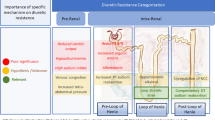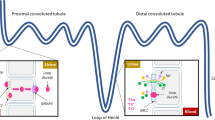Abstract
Cardiovascular disease is the leading cause of death in developed countries. It is estimated that about 15 million people worldwide die every year from heart disease, with a substantial proportion of these deaths occurring in developing nations. Congestive heart failure (CHF) is a condition that develops as a late complication from a variety of heart disease states. CHF remains a devastating disease. It exacts a high toll in terms of mortality and morbidity and carries a high price burden. As the population ages and treatments for conditions such as acute coronary syndrome and hypertension improve, the prevalence of heart failure can be expected to increase, because survivors of hypertension and myocardial infarction live long enough to develop complications such as congestive heart failure.
Recent advances have clearly shown that treatment strategies including ACE inhibitors, β-adrenoceptor antagonists, and aldosterone inhibitors improve morbidity and survival. However, even among patients treated with recommended therapy at recommended doses, mortality remains high. Opportunities exist for further improvement of prognosis beyond current guidelines for heart failure. As new evidence emerges, it is evident that survival can be further improved by using other strategies such as angiotensin receptor antagonists as alternative or add-on therapy and ventricular resynchronization for qualifying candidates.
The management of heart failure patients in the community presents unique challenges. Patients who are managed in community hospitals are often elderly and/or very ill, with several comorbidities and clinical characteristics that may be different from patients who qualify for clinical trials. Furthermore, there appears to be a delay in incorporating scientific evidence into practice and studies continue to show that many heart failure patients do not receive recommended medications at adequate doses.
Disease management programs have evolved as a way of improving heart failure care. Different models have been established and some institutions have published the results of their specific programs. The consistent findings include reductions in hospitalization rates, improvements in quality of life, and reductions in cost. However, to date, such studies have not compared different models and until large prospective trials are available, the true benefits of these programs will continue to be debated.



Similar content being viewed by others
References
American Heart Association. 2003 heart and stroke statistical update [online]. Available from URL: http://www.americanheart.org/statistics/coronary.html [Accessed 2003 Mar 5]
Akosah KO, Moncher K, Schaper A, et al. Chronic heart failure in the community: missed diagnosis and missed opportunities. J Card Fail 2001; 7: 232–8
Davies MK, Hobbs FD, Ravis RC, et al. Prevalence of left ventricular systolic dysfunction and heart failure in the Echocardiographic Heart of England Screening study: a population-based study. Lancet 2001; 358: 439–44
Packer M, Poole-Wilson A, Armstrong PW. Comparative effects of low and high doses of the angiotensin-converting enzyme inhibitor, lisinopril, on morbidity and mortality in chronic heart failure. Circulation 1999; 100: 2312–8
Echemann M, Zannad F, Briancon S, et al. Determinants of angiotensin-converting enzyme inhibitor prescription in severe heart failure with left ventricular systolic dysfunction. Am Heart J 2000; 139: 624–31
Roe CM, Motheral BR, Teitelbaum F, et al. Angiotensin-converting enzyme inhibitor compliance and dosing among patients with heart failure. Am Heart J 1999; 138: 818–25
Croft JB, Giles WH, Pollard RA, et al. Heart failure survival among older adults in the United States: a poor prognosis for an emerging epidemic in the Medicare population. Arch Intern Med 1999; 159: 505–10
The CONSENSUS Trial Study Group. Effects of enalapril on mortality in severe congestive heart failure: results of the Cooperative North Scandinavian Enalapril Survival Study. N Engl J Med 1987; 316: 1429–35
Domanski MJ, Garg R, Yusuf S. Prognosis in congestive heart failure. In: Hosenpud JD, Greenberg BH, editors. Congestive heart failure: pathophysiology, diagnosis and comprehensive approach to management. New York: Springer-Verlag, 1994: 622–7
Krumholz HM, Parent EM, Tu N, et al. Remission after hospitalization for congestive heart failure among Medicare beneficiaries. Arch Intern Med 1997; 157: 99–104
Moser DK. Heart failure management: optimal health care delivery programs. Annu Rev Nurs Res 2000; 18: 91–126
McAlister FA, Lawson FME, Teo KK, et al. A systemic review of randomized trials of disease management programs in heart failure. Am J Med 2001; 110: 378–94
Rich MW. Heart failure management: optimal health care delivery programs. J Card Fail 1999; 5: 64–75
Stewart S, Horowitz JD. Home-based intervention in congestive heart failure: longterm implications on readmission and survival. Circulation 2002; 105: 2861–6
Chin MH, Goldman L. Factors contributing to the hospitalization of patients with congestive heart failure. Am J Public Health 1997; 87: 643–8
Bennett SJ, Milgrom LB, Chamption V, et al. Beliefs about medication and dietary compliance in people with heart failure: an instrument development study. Heart Lung 1997; 26: 273–9
Riegel B, Carlson B, Kopp Z, et al. Effect of a standardized nurse caseanagement telephone intervention on resource use in patients with chronic heart failure. Arch Intern Med 2002; 162: 705–12
Clarke JL, Nash DB. The effectiveness of heart failure disease management: initial findings from a comprehensive program. Dis Manag 2002; 5: 215–23
Brass-Mynderse NJ. Disease management for chronic congestive heart failure. J Cardiovasc Nurs 1996; 11: 54–62
Paul S. Implementing an outpatient congestive heart failure clinic: the nurse practitioner role. Heart Lung 1997; 26: 486–91
Akosah KO, Schaper AM, Havlik P, et al. Improving care for patients with chronic heart failure in the community. Chest 2002; 122: 906–12
Whellan DJ, Gaulden L, Gattis WA, et al. The benefit of implementing a heart failure disease management program. Arch Intern Med 2001; 161: 2223–8
Ramahi TM, Longo MD, Rohlfs K, et al. Effect of heart failure program on cardiovascular drug utilization and dosage in patients with chronic heart failure. Clin Cardiol 2000; 23: 909–14
Fonarow GC, Stevenson LW, Waiden JA, et al. Impact of a comprehensive heart failure management program on hospital readmission and functional status of patients with advanced heart failure. J Am Coll Cardiol 1997; 30: 725–32
Rich MW, Beckman V, Wittenberg C, et al. A multidisciplinary intervention to prevent the readmission of elderly patients with congestive heart failure. N Engl J Med 1995; 333: 1190–5
Kornowski R, Zeeli D, Averbuch M, et al. Intensive home-care surveillance prevents hospitalization and improves morbidity among elderly patients with severe congestive heart failure. Am Heart J 1995; 129: 762–6
Shah NB, Der E, Ruggerio C, et al. Prevention of hospitalizations for heart failure with an interactive home monitoring program. Am Heart J 1998; 135: 373–8
Tilney CK, Whiting SB, Horrar JL, et al. Improved clinical and financial outcomes associated with a comprehensive congestive heart failure program. Dis Manag 1998; 1: 175–83
West JA, Miller NH, Parker KM, et al. A comprehensive management system for heart failure improves clinical outcomes and reduces medical resource utilization. Am J Cardiol 1997; 79: 58–63
Hanumanthu S, Butler J, Chomsky D, et al. Effect of a heart failure program on hospitalization frequency and exercise tolerance. Circulation 1997; 96: 2842–8
Krumholz HM, Amatruda J, Smith GL, et al. Randomized trial of an education and support intervention to prevent readmission of patients with heart failure. J Am Coll Cardiol 2002; 39: 83–9
Acknowledgments
The authors have no conflicts of interest that are directly relevant to the content of this article. Support for a research fellow was provided by the Gunderson Lutheran Foundation.
Author information
Authors and Affiliations
Corresponding author
Rights and permissions
About this article
Cite this article
Akosah, K.O., Carothers, S. Short-Term Aggressive Disease Management Programs for Heart Failure. Dis-Manage-Health-Outcomes 12, 221–227 (2004). https://doi.org/10.2165/00115677-200412040-00002
Published:
Issue Date:
DOI: https://doi.org/10.2165/00115677-200412040-00002




